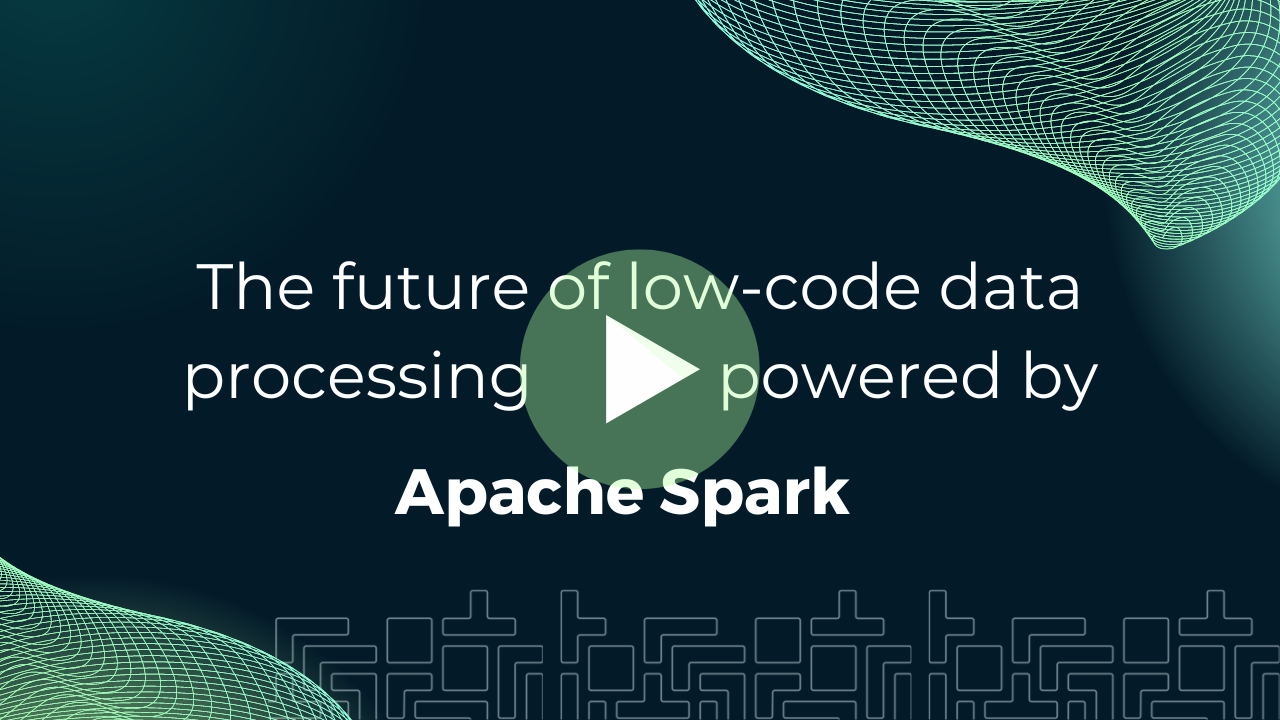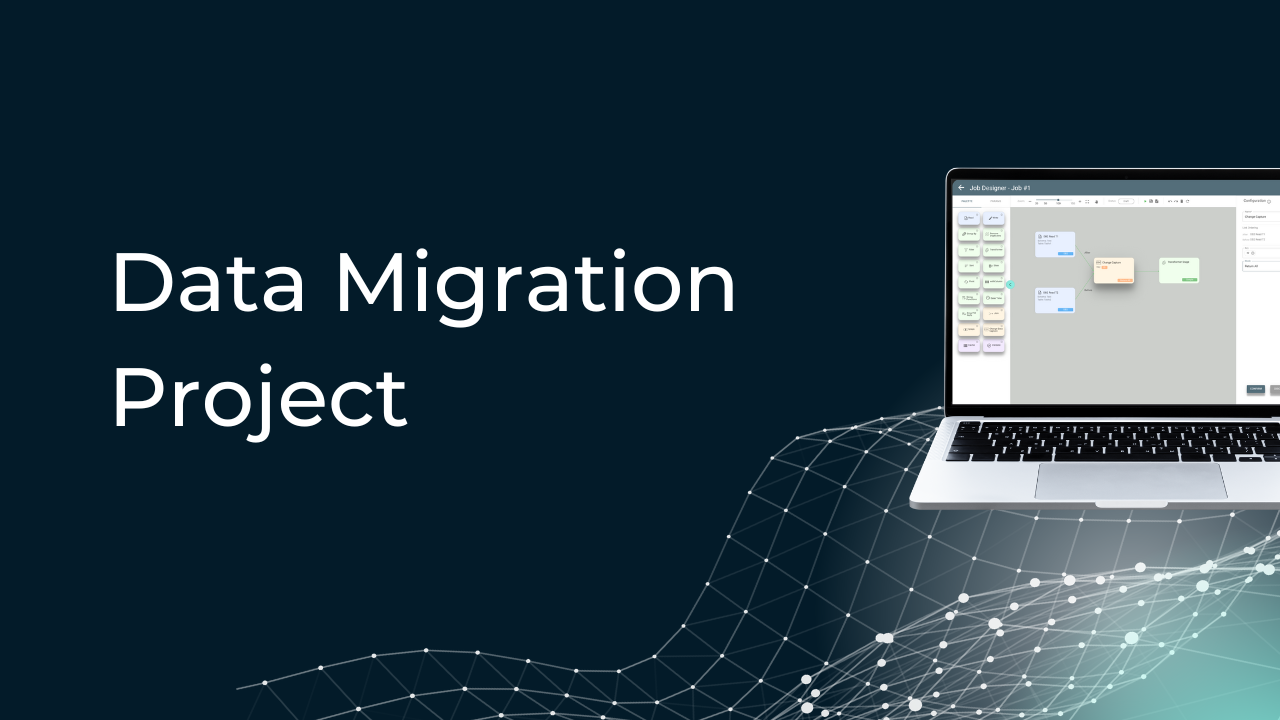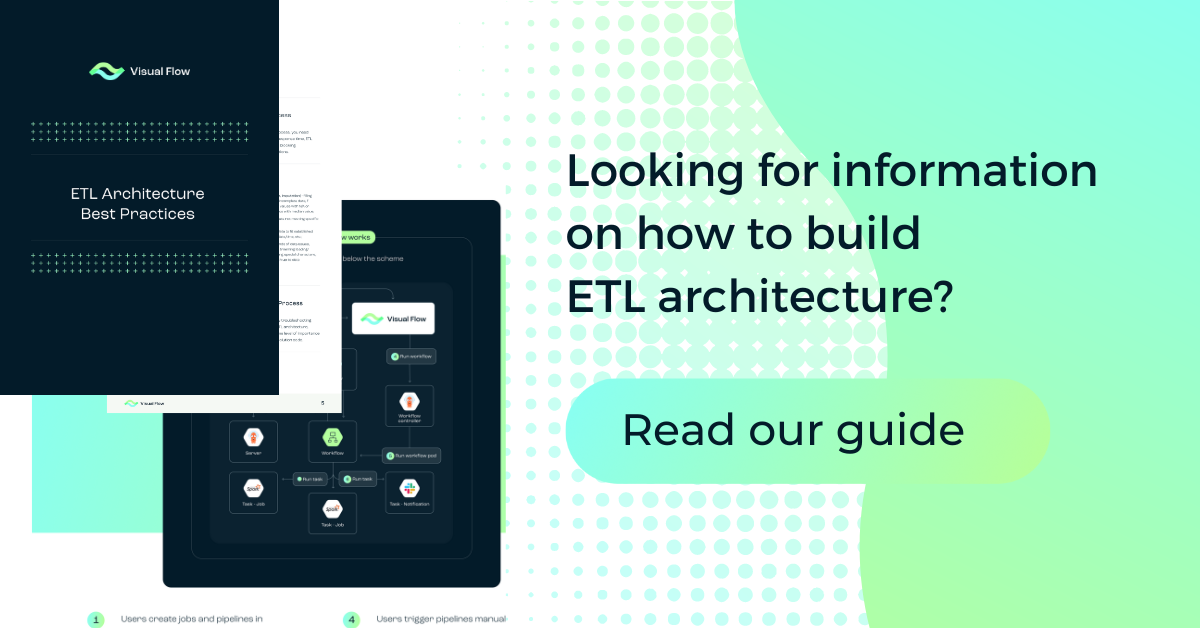
Table of Content:
Table of Content:


The concept of Zero ETL (Extract, Transform, Load) is important for data management. Traditional data integration methods are sometimes slow, complicated, and prone to errors.
But what if you could access and analyze data in real time without these difficulties? Enter the zero ETL approach — a method that promises a more efficient way to handle data.
What Exactly is Zero ETL?
Zero ETL, or zero Extract, Transform, Load, is a modern approach to data integration that skips the traditional ETL steps. Instead of moving and transforming data before it can be analyzed, zero ETL enables real-time access to raw data directly from its source. This makes data processing faster and more effective.
Due to zero ETL, businesses no longer need to spend time and resources on complex data preparation. The data remains in its original format and location until it’s needed for analysis. This method uses advanced technologies to dynamically interpret and transform data on the fly, so you get up-to-date insights without delays.

What Makes up Zero ETL?
Zero ETL is built on several key components that optimize data integration and analysis. Let’s explore them one by one.
Data Sources
In a zero ETL approach, data comes from various sources, such as databases, cloud storage, streaming platforms, and IoT devices. These sources feed raw data directly into the system without requiring preliminary extraction or transformation. Direct access to data ensures that information is up-to-date and ready for real-time analysis.
Data Lake Architecture
Data lake architecture is a necessary part of the zero ETL process. In comparison with traditional data warehouses that require structured data, data lakes store huge amounts of unstructured and semi-structured data to allow companies to collect and keep all types of data in its raw form. A robust data lake enables quickly retrieving and analyzing data with no need for extensive preprocessing.
Schema-On-Read Engine
Zero ETL employs a schema-on-read engine to manage data dynamically. Instead of imposing a fixed schema before storing data (schema-on-write), schema-on-read applies the schema when the data is read. This means that data is stored in its original format and only transformed when it’s accessed for analysis. This approach drastically reduces the time and effort required for data preparation.
Data Analysis Technologies
Advanced data analysis technologies are the core of zero ETL. Tools and platforms equipped with powerful processing capabilities, machine learning algorithms, and real-time analytics allow businesses to swiftly derive actionable insights. These technologies work with raw data and offer instant results without the delays typically related to traditional ETL processes.

What is the Process for Zero ETL Integration?
Integrating a no-code ETL approach involves several steps:
Identify Data Sources
Start by identifying all the data sources you need to integrate. They may include:
- Databases: both relational (like MySQL, PostgreSQL) and NoSQL (like MongoDB, Cassandra).
- Cloud storage: services like AWS S3, Google Cloud Storage, and Azure Blob Storage.
- Streaming platforms: sources like Apache Kafka, Amazon Kinesis, and Google Pub/Sub.
- IoT devices: sensors and devices that collect real-time data.
It’s also important to understand the format and structure of each source.
Implement Data Lake Architecture
Set up a data lake to store your raw data. Unlike traditional data warehouses that require structured data, data lakes can store:
- Unstructured data: text files, images, videos.
- Semi-structured data: JSON, XML.
- Structured data: tables, relational data.
This step will help you keep all types of data in its raw form for easy retrieval and analysis.
Deploy a Schema-on-read Engine
Here’s why this matters:
- Flexibility. You can apply schemas only when data is read.
- Efficiency. You can store data in its original format to reduce preprocessing time.
- Adaptability. It is possible to easily accommodate changes in data formats and structures.
Popular schema-on-read engines include Apache Drill, Presto, and Amazon Athena.
Choose Advanced Data Analysis Tools
Select strong data analysis tools capable of:
- Real-time processing: tools like Apache Flink and Spark Streaming.
- Machine learning: platforms like TensorFlow and PyTorch.
- High-speed analytics: solutions such as Druid and ClickHouse.
These tools should work seamlessly with raw data to offer instant insights without delays.

Integrate Data Sources with Data Lake
Connect your data sources to the data lake using:
- APIs: RESTful APIs for data transfer.
- Data connectors: tools like Apache NiFi, Talend, or Informatica.
- Data ingestion tools: services like AWS Glue and Google Cloud Dataflow.
Ensure continuous data flow from various sources into the data lake with no need for extraction or transformation.
Set up Real-time Data Monitoring
Implement monitoring solutions to track data flow and integrity:
- Monitoring tools: Grafana, Prometheus for visualization and alerting.
- Data quality checks: tools like Great Expectations to guarantee data accuracy.
Quickly identify and resolve any issues to maintain reliable and accessible data.
Conduct Continuous Optimization
Regularly review and optimize your zero ETL processes:
- Update architecture: ensure your data lake scales with growing data volumes.
- Enhance tools: upgrade data analysis tools for better performance.
- Refine configurations: adjust schema-on-read settings for efficiency.
This is how you can streamline data integration and gain real-time insights faster. If you need expert guidance on ETL migration, our ETL migration consulting services will help you transition to zero ETL or optimize your existing ETL processes.
Key Benefits of Zero ETL
Adopting a zero ETL approach is worth considering for the following reasons:
- Real-time data availability. Data is directly accessible from its source without any middle steps. This means you get up-to-the-minute information needed for making quick decisions.
- Reduced latency. Skipping the traditional ETL process lowers the time it takes to get data where you need it. Data flows straight from its origin to your analysis tools, cutting down any delays.
- Cost-efficiency. Traditional ETL processes are pricey sometimes as they require lots of resources and infrastructure. Zero ETL cuts out these steps and saves you money on both hardware and operational costs.
- Simplified architecture. A zero ETL setup is simpler. As you don’t need complex ETL pipelines, your data architecture becomes more straightforward, so that you can manage and maintain it better.
- Enhanced flexibility. Zero ETL allows data to stay in its raw form until you’re ready to use it. You can easily handle different types and formats of data without being locked into a rigid structure.
- Scalability. Data lakes, often used in zero ETL setups, can grow with your data needs. They handle increasing amounts of unstructured and semi-structured data without losing performance.
- Improved data quality. Real-time monitoring and schema-on-read engines help keep your data clean and accurate. Any issues get spotted and fixed quickly, and you get reliable data for analysis.
- Faster time to insights. As you avoid the ETL process, you can speed up your time to insights and analyze data as soon as it’s available.
- Better resource utilization. Your data teams can focus more on analyzing data and less on processing it. This means better use of your team’s skills and more time spent on strategic tasks.
- Integration with modern tools. No-code ETL fits well with today’s advanced data tools and technologies, such as machine learning, real-time analytics, etc. You can integrate new tools without being held back by traditional ETL limitations.
In short, switching to a zero ETL approach unlocks new potential for your business.

Applications of Zero ETL
The zero ETL approach can be applied across various industries and use cases, including:
- Real-time analytics. This includes financial services (monitoring stock prices, detecting fraud, and managing risk in real-time) and retail (analyzing customer behavior and inventory levels to optimize sales and supply chain operations).
- Internet of Things (IoT). IoT devices generate huge amounts of data continuously, so zero ETL is a great fit for smart cities (analyzing data from sensors and cameras to manage traffic, energy, and public services) and industrial automation (monitoring equipment and processes in real time to predict failures and optimize maintenance schedules).
- Customer experience. It can be improved by using real-time data from various touchpoints, such as e-commerce (personalizing marketing campaigns and recommending products based on user behavior) or telecommunications (improving customer service by analyzing call data and social media interactions in real time).
- Healthcare. Zero ETL facilitates real-time data integration from various sources, including patient monitoring and public health (tracking disease outbreaks and vaccination rates to respond quickly to public health emergencies).
- Fraud detection. Financial institutions and online platforms can use zero ETL for transaction monitoring or user behavior analysis.
- Supply chain management. It includes logistics (monitoring fleet movements, delivery times, and warehouse inventories) and demand forecasting (analyzing sales data and market trends in real time to predict demand).
- Social media analytics. Social media platforms and marketers can use zero ETL for sentiment analysis (understanding public opinion and sentiment about brands, products, or events in real time) or trend monitoring (keeping track of trending topics and hashtags).
- Financial services. Beyond fraud detection, other applications include algorithmic trading and portfolio management.
- Energy sector. It is possible to manage and optimize energy production and consumption through smart grids (analyzing data from smart meters and grids to balance supply and demand) and renewable energy (monitoring and predicting energy output from renewable sources like wind and solar).
Zero ETL future is a path to numerous possibilities for different sectors. Who knows, maybe your business can benefit from its real-time data processing and analysis capabilities.
Final Thoughts
Integrating a zero ETL approach can change the way you manage data. Its speed, simplicity, cost savings, flexibility, scalability, data quality, resource efficiency, and other benefits are everything you need to streamline your data integration and analytics.








Contact us






















































